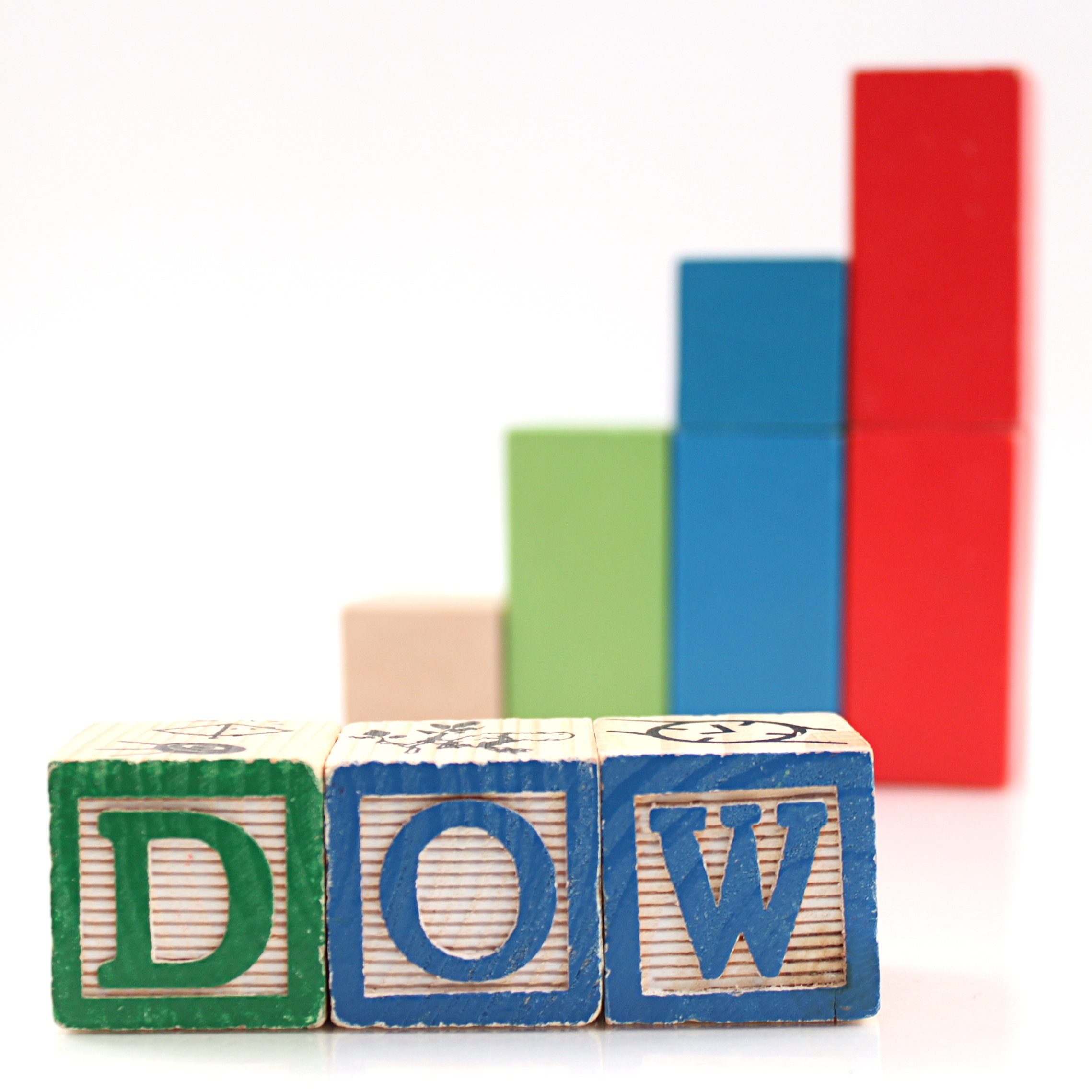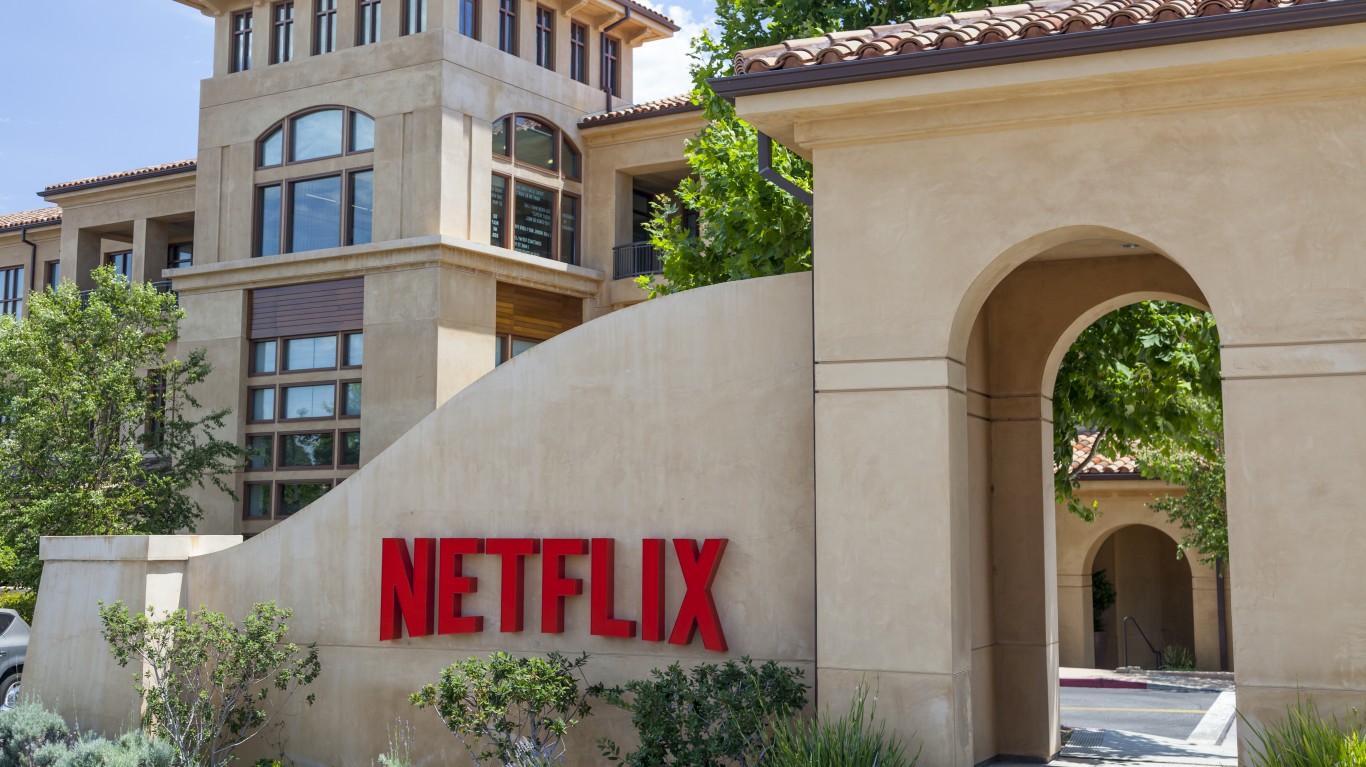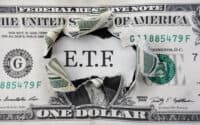
Over the course of the past week’s five trading sessions, the Dow Jones industrial average dropped more than 1,400 points, the biggest weekly percentage loss in more than two years. Eight Dow component stocks are down at least 10% for the year to date and only six have been able to show a gain so far in 2018.
No one will be shocked to read that General Electric Co. (NYSE: GE) is the worst-performing Dow stock of 2018, down 25.1% as of Friday. The stock posted a new 52-week low Friday at $13.02. As the share price declines, investors worry more about the viability of GE’s dividend payments. At yesterday’s close the dividend yield is 3.41%. For the prior 12 months, GE shares have lost nearly 56% of their value.
Procter & Gamble Co. (NYSE: PG) has seen its share price drop by 17.38% to date in 2018. Shares lost nearly 4% last week and set a new 52-week low of $75.81 on Friday. The stock has long been a favorite defensive holding, and of the eight stocks on this list, its weekly loss was the second smallest. The stock’s dividend yield is 3.52%, and shares are down 16.4% for the past 12 months.
Walmart Inc. (NYSE: WMT) dropped 4.21% last week and shares are down 13.5% for the year to date. The company has been waging a near-life and death battle with Amazon that is both costly and only a moderate success. Walmart’s dividend yield at Friday’s close was 2.39%, and shares still trade up by over 22% over the past 12 months.
Exxon Mobil Corp. (NYSE: XOM) closed Friday down 12.85% for the year to date and down just under 3% for the week. That was the smallest weekly loss of any of the stocks on this list. Exxon was buoyed by last week’s 5.6% boost to crude oil prices. The stock’s dividend yield was 4.14% at Friday’s close, and shares are down about 11% over the past 12 months.
Verizon Communications Inc. (NYSE: VZ) has lost about 12.5% of its value since the beginning of the year. Last week’s dip of 4.67% didn’t help, but Verizon did manage to avoid setting a new annual low during the week. The company’s 5% dividend yield helps keep investors in the fold, and some encouraging words about Verizon’s 5G technology also helped moderate losses last week. The stock is still underperforming for the past 12 months, however, down 6.75%.
DowDuPont Inc. (NYSE: DWDP) has posted a year-to-date drop of about 11.5% after losing 7.2% of its value last week. Like Verizon, the industrial firm managed to avoid posting a new low last week, and the stock price is flat over the past 12 months. DowDuPont’s dividend yield was 2.32% at Friday’s close.
Johnson & Johnson (NYSE: JNJ) dropped 6.42% last week to bring its year-to-date loss to 10.5%. Like P&G, this is another defensive stock that investors hold onto for its long history of dividend performance. At Friday’s closing price, the dividend yield for J&J is 2.64%, hardly a dazzler, but an amount that is a virtual lock to be paid. For the past 12 months, its shares have lost just 0.6%.
McDonald’s Corp. (NYSE: MCD) makes this list because its stock is down 9.96% for the year, close enough to 10% for us. Shares lost 4.55% last week, but has still has added just over 20% to its share price during the past 12 months. Not quite as sure a defensive play as P&G or J&J, McDonald’s pays a dividend yield of 2.55% and remains a favorite among some analysts.
Is Your Money Earning the Best Possible Rate? (Sponsor)
Let’s face it: If your money is just sitting in a checking account, you’re losing value every single day. With most checking accounts offering little to no interest, the cash you worked so hard to save is gradually being eroded by inflation.
However, by moving that money into a high-yield savings account, you can put your cash to work, growing steadily with little to no effort on your part. In just a few clicks, you can set up a high-yield savings account and start earning interest immediately.
There are plenty of reputable banks and online platforms that offer competitive rates, and many of them come with zero fees and no minimum balance requirements. Click here to see if you’re earning the best possible rate on your money!
Thank you for reading! Have some feedback for us?
Contact the 24/7 Wall St. editorial team.
 24/7 Wall St.
24/7 Wall St.


